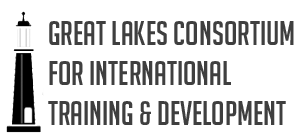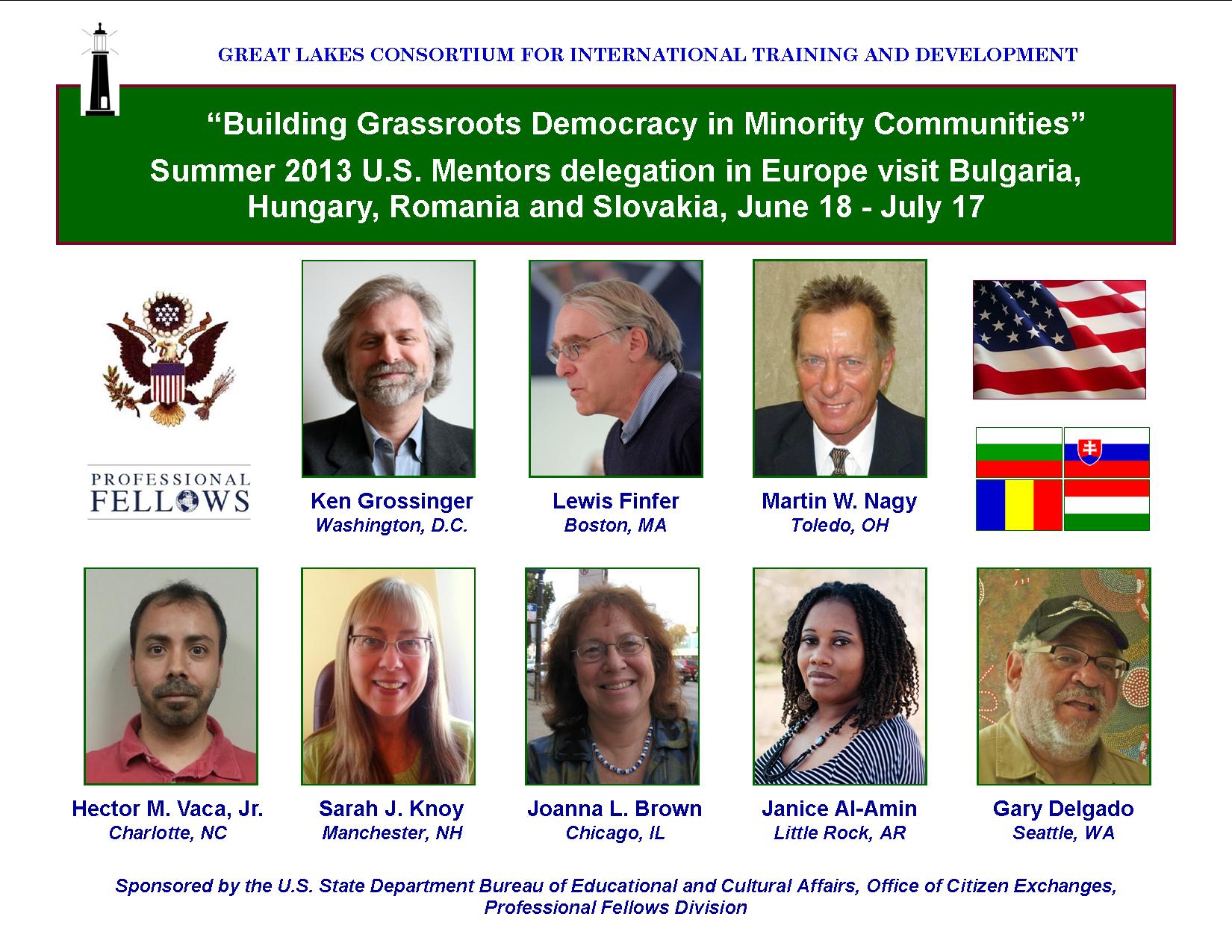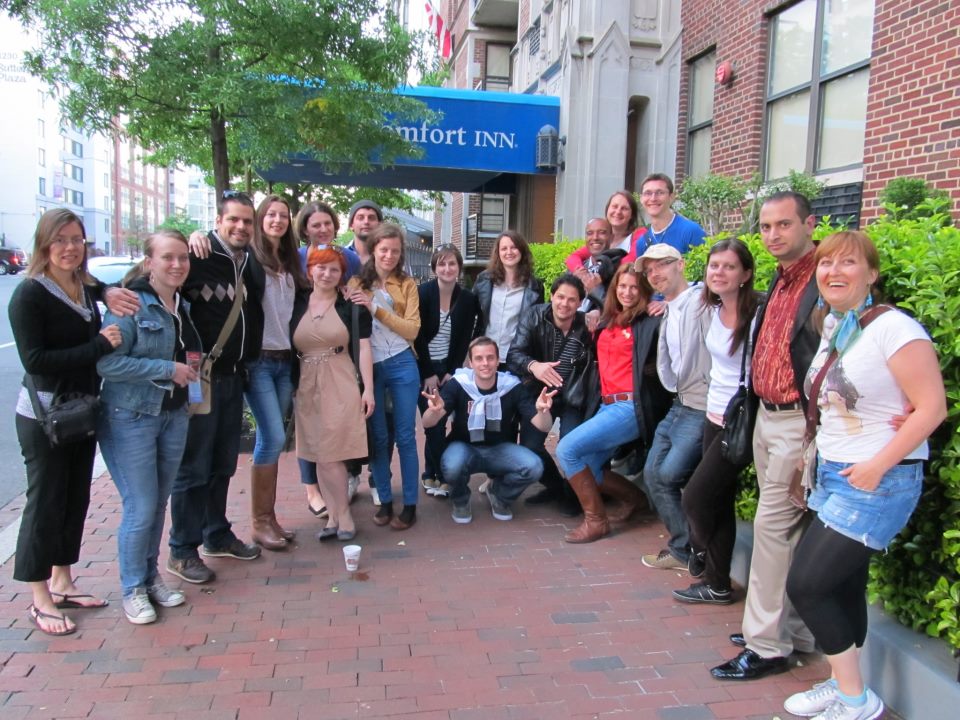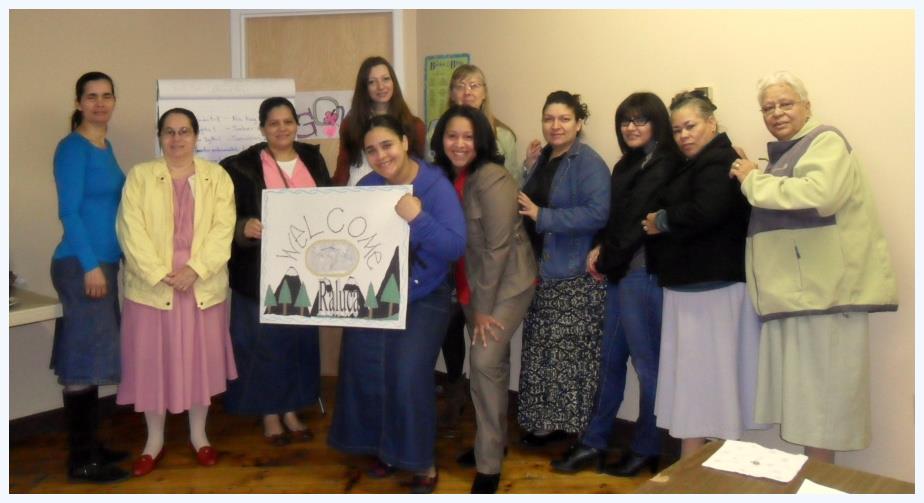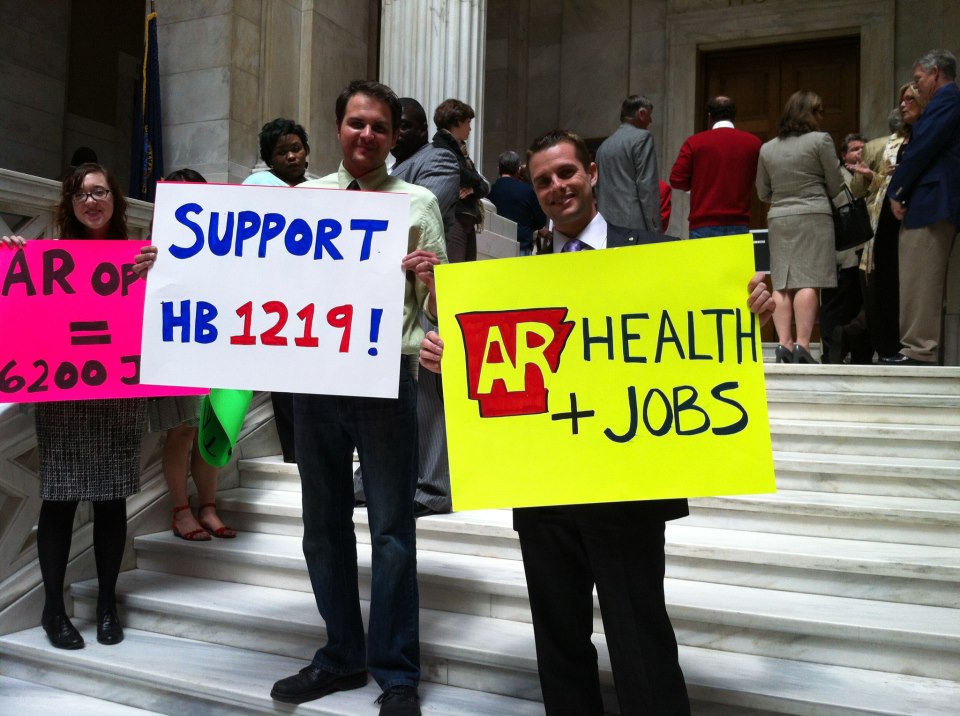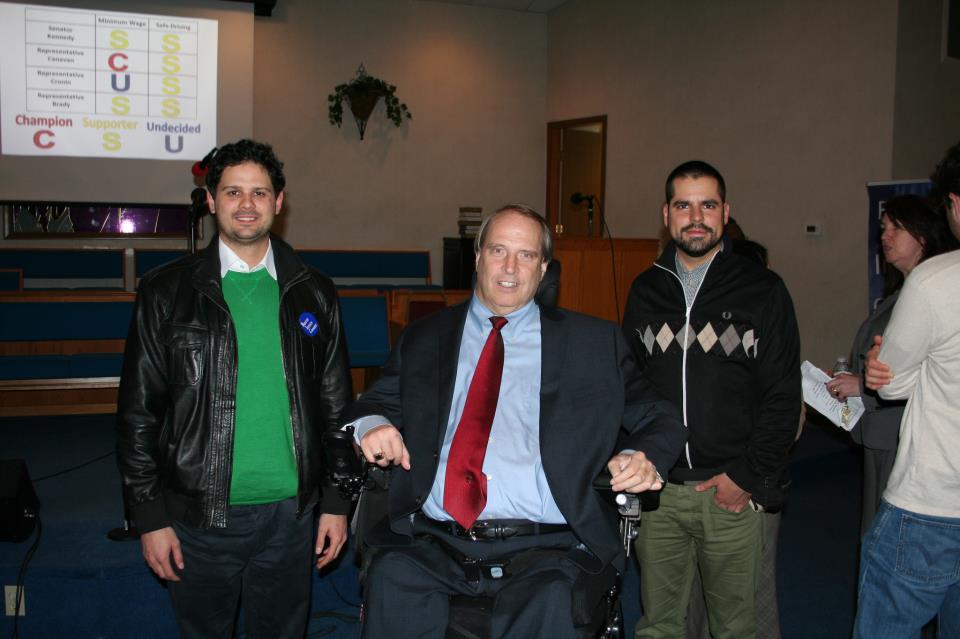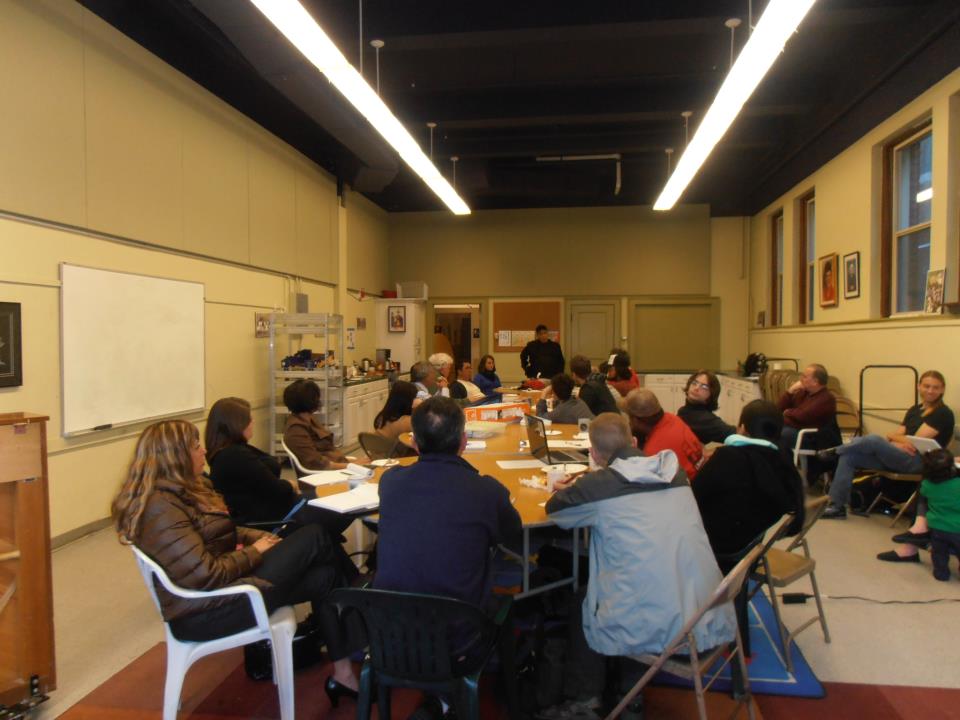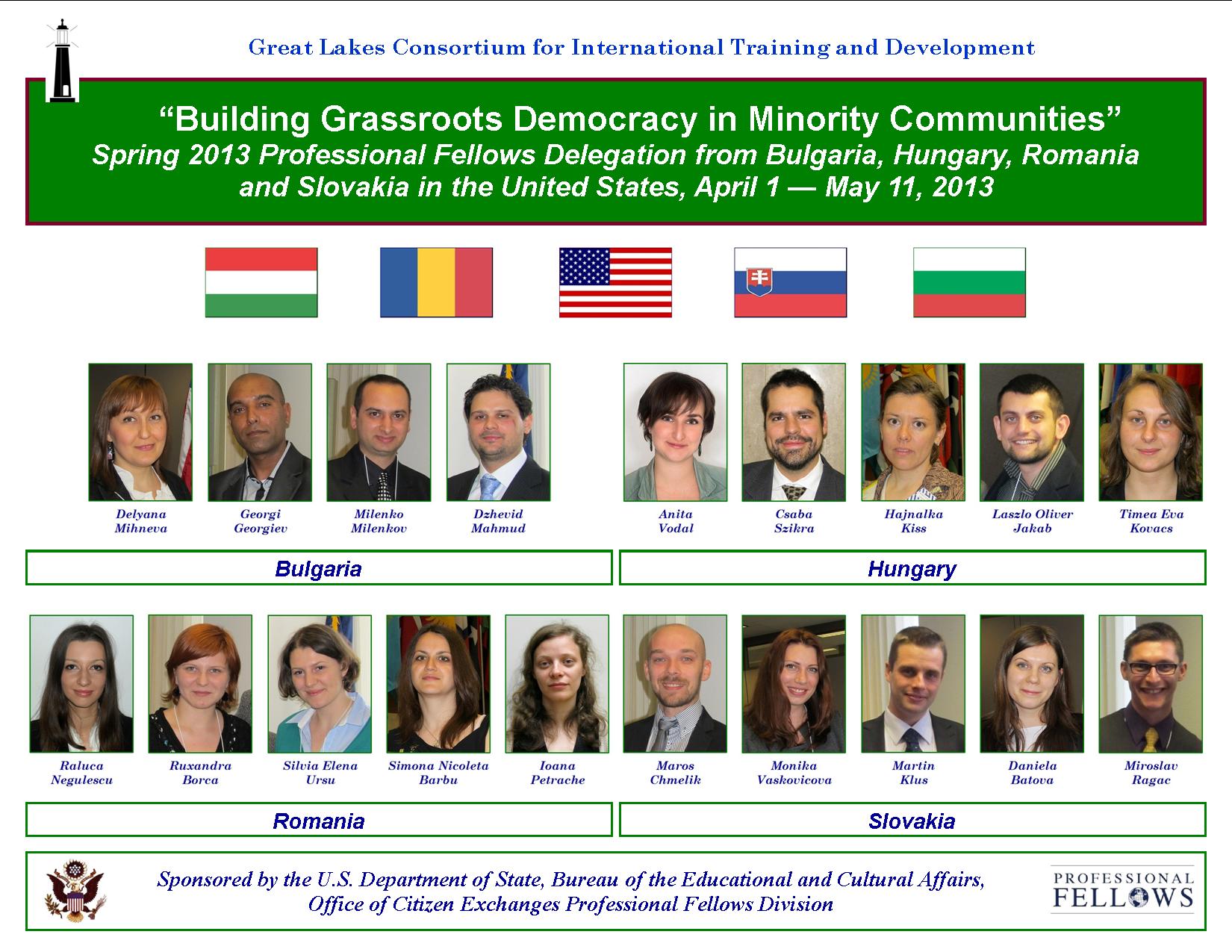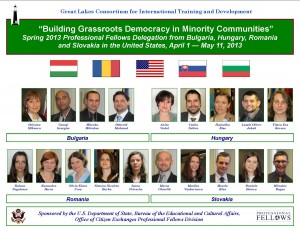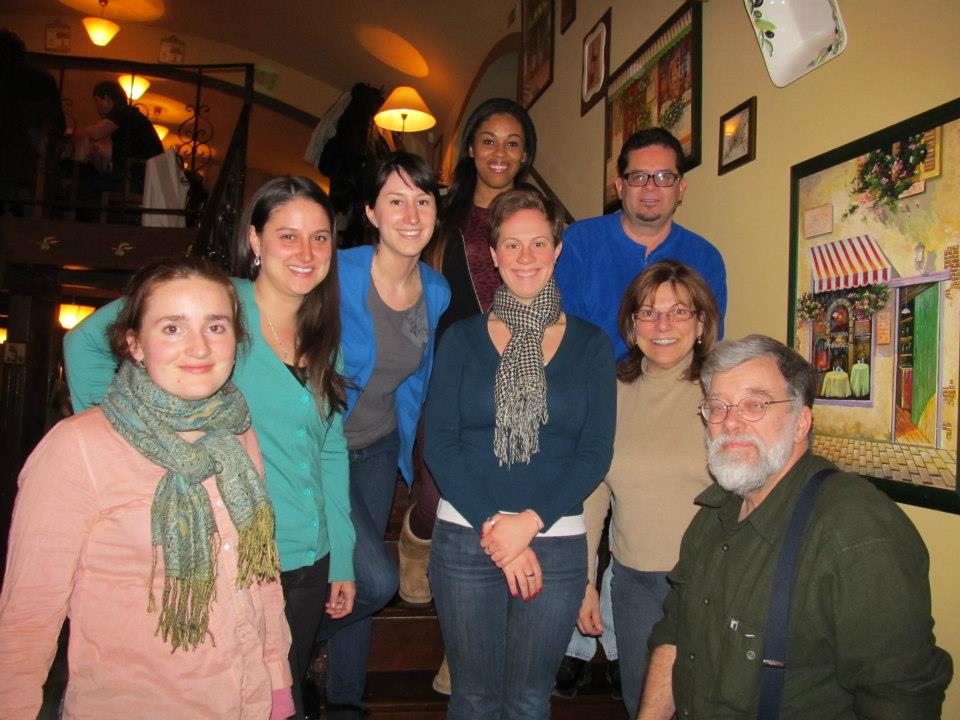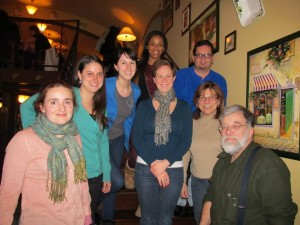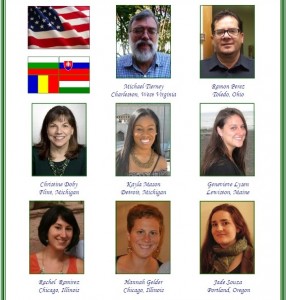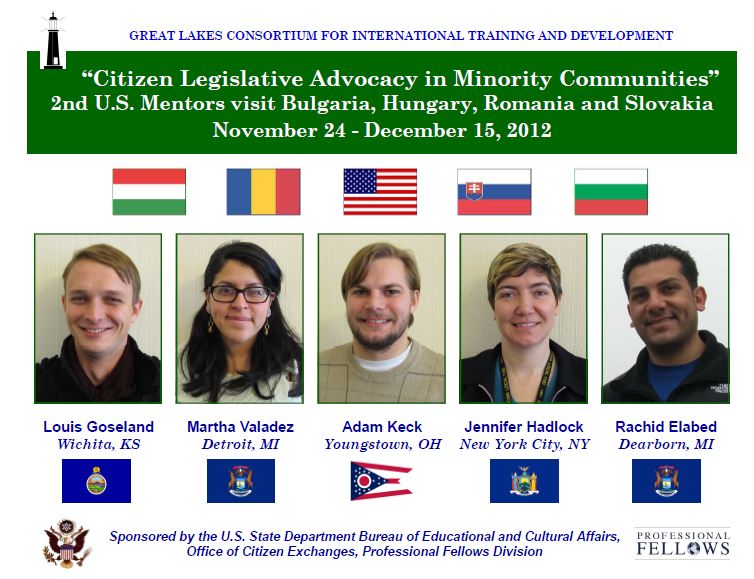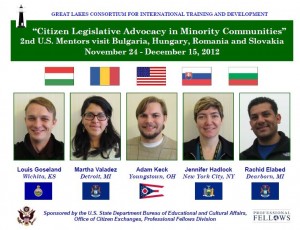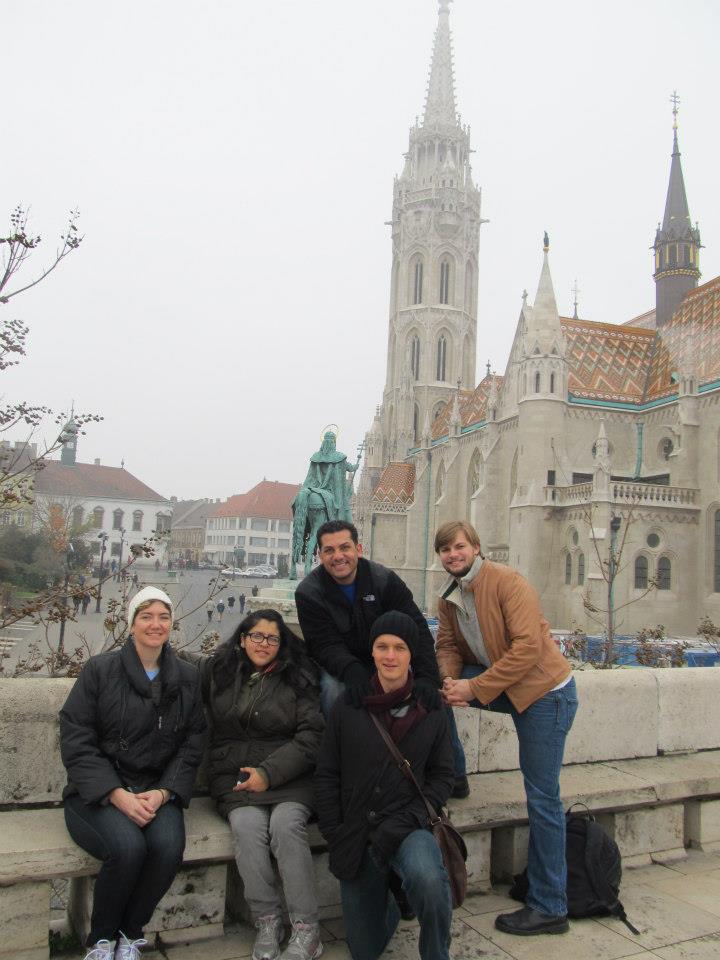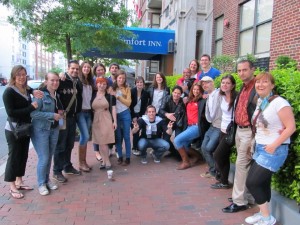 My name is Anita Vodál, and I’m a trainee lawyer at the Hungarian Civil Liberties Union. I came to the U.S. through an international community organizing exchange. My previous intention was to learn how to combine legal empowerment with community organizing back in Hungary. Surprisingly, I learned that you cannot empower people without organizing them – making them aware of their own power.
My name is Anita Vodál, and I’m a trainee lawyer at the Hungarian Civil Liberties Union. I came to the U.S. through an international community organizing exchange. My previous intention was to learn how to combine legal empowerment with community organizing back in Hungary. Surprisingly, I learned that you cannot empower people without organizing them – making them aware of their own power.
I was so absorbed in the issues and social problems of Hungary that I didn’t have much time before I arrived to think about how things would be in the U.S. I spend most of my time in the “world as it is,” instead of the “world as it should be,” which means that I was complaining about social injustice all the time without taking any action.
Five weeks ago, I arrived in the U.S. with 18 other fellows from Central European countries with the enthusiasm to learn community organizing and how grassroots democracy functions. Our training included a three-week internship during which our group split up and each of us went to different organizations in various states across the country. We all work with minority groups back in our countries (Bulgaria, Hungary, Romania and Slovakia) as part of the legal, social worker or organizing staff. I was placed for my internship at the Chicago Coalition for the Homeless (CCH), along with Miro Ragac from Slovakia.
This exchange program, funded and organized by the U.S. State Department, also allows community organizers from the U.S. go to Central Europe in order to learn how things work there, how powerful organizations operate, what are the biggest social challenges organizers have to face, etc. Europeans try to get the same answers from American organizations and participants during the six weeks spent in the U.S.
I was completely aware that there are homeless people on the streets in the U.S. too, and that people are concerned about various social issues. However, I never thought that Americans struggle with the same challenges as we do in the middle of Europe – after 40 years of Socialism – nor that in the U.S. people also have to fight for democratic values and against racism. I had to realize that discrimination remains an issue even if we are across the ocean in a country ruled by a democratic leader. It seems to me that this struggle is something that we have to fight for, no matter where we live.
In Hungary, Roma people are the biggest ethnic minority, or about 10% of the entire population. The Roma community faces an enormous level of discrimination in every facet of life, including housing, employment, and education. They live in very poor living conditions, lots of them have no running water in their houses, the unemployment rate is almost 90%, and most of the Roma children go to segregated schools or classes. The far-right political party, Jobbik, has 20% of the representatives in the Parliament. This ruling conservative government supports the idea of “gypsy criminality.” This concept has significantly increased the level of racism experienced by Roma people in the last few years.
During my stay I the U.S., I have realized that this country also faces serious problems of discrimination and segregation, even though it is ruled by a democratic government.
I would like highlight the issue that surprised me the most.
If a person has a criminal background in the U.S., they have to carry this felony through their entire life as a stamp on their forehead. It stays there forever; anyone can have access to their criminal record. Related to homelessness, these people are excluded from public housing through the Chicago Housing Authority for at least five years, and have to wait at least another couple of years on the housing choice wait list until they can access an apartment. They cannot rejoin family living in public housing just because of the felony. They can hardly get a job, since their future employee can easily do a background check on them. What is the point of letting people out of prison if they are excluded from most services and their fundamental rights are curtailed? In Hungary, you can get rid of the felony after a certain amount of time, depending on the crime. There are some extensions, but in most of the cases your criminal record becomes blank and nobody can check it except certain authorities. It is your private information. It seems that there are regulations that are more humane in Central Europe and the U.S. has to improve.
Besides plenty of best practices, useful tools and great advice that I can take back home with me, I’ve learned during my time in Chicago to live sometimes in “the world as it should be.”
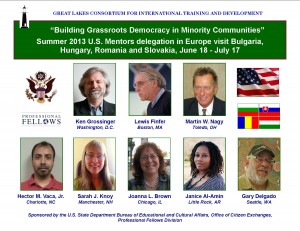 The first delegation with a total of 19 fellows from Bulgaria, Hungary, Romania and Slovakia visited the U.S. from April 1 – May 11, 2013 and participated in group seminars, round-table discussions, site visits, and had have interactions with United States leaders..
The first delegation with a total of 19 fellows from Bulgaria, Hungary, Romania and Slovakia visited the U.S. from April 1 – May 11, 2013 and participated in group seminars, round-table discussions, site visits, and had have interactions with United States leaders..